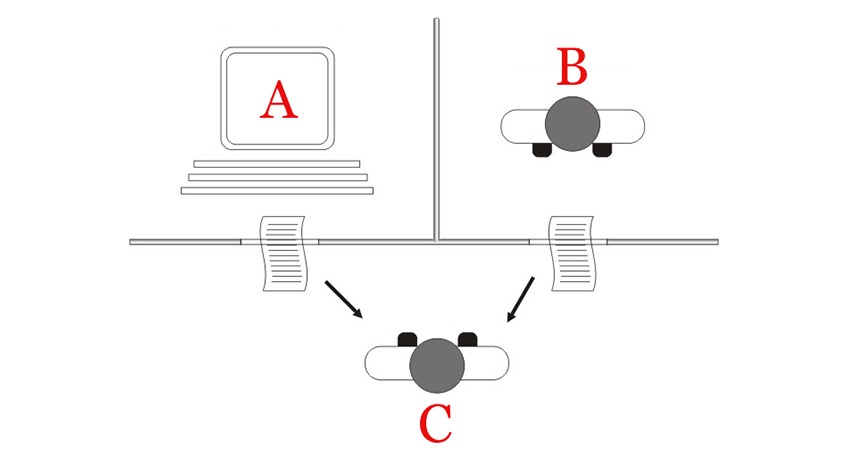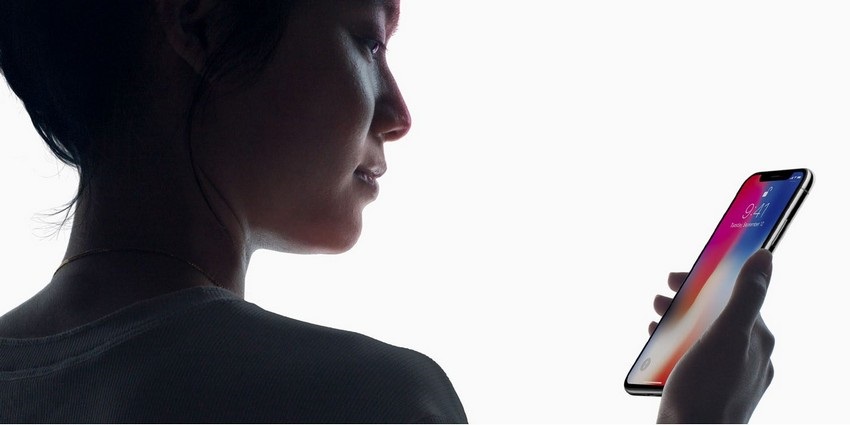AI - Artificial Intelligence (EVERYTHING YOU WANT TO KNOW)
Humans have always been trying to find ways to make things easier. From mechanical machines, the development has shifted to areas that people could hardly imagine, much less understand a hundred years ago. In the recent years, it looks like everything that surrounds us is SMART . Smart phones, refrigerators, cameras, houses, cars, benches and entire cities. But this is not yet the AI in the true sense. However, AI is a term we hear quite often. What is the definition, application and future of artificial intelligence? And will the innovations from giants like Google or Apple bring us to the era of robots or Skynet?
Are you wondering what topics, news and innovations were most discussed in context of artificial intelligence at the CES 2020 Consumer Electronics Show? You'll find the answer in the chapter CES 2020 - Artificial Intelligence in the spotlight !

AI - Artificial Intelligence: CONTENTS
- What is artificial intelligence? Definition
- History of artificial intelligence
- Have you heard of the Turing test?
- Would a dinosaur recognize a chihuahua from a muffin?
- Artificial intelligence creation - how do we approach AI?
- From smart clips to digital assistents
- From expert systems to neural networks
- Artificial intelligence in mobile phones
- The first mobile processors with built-in artificial intelligence
- More and more cameras are using artificial intelligence
- Benefits of AI in phones
- Virtual assistants work on machine learning
- Artificial intelligence in games
- Gradual development of AI in the video game industry
- The possibilities of AI in gaming are endless. What can we look forward to?
- The future of artificial intelligence - where is technology heading?
What is artificial intelligence? Definition
Artificial intelligence is, in short, a science or discipline that deals with a development of algorithms and machines showing signs of intelligent behavior. However, this is not a precise definition as there are several explanations for this relatively new concept and none of them is yet generally accepted. Artificial intelligence as a whole is built on the foundations of many other scientific disciplines, especially computer science, mathematics, statistics, logic, linguistics or neurosciences. Commonly we can also use the abbreviation UI or AI ( A rtificial I ntelligence).
History of artificial intelligence
The history of artificial intelligence goes back to the 1950s and the summary of all important events would certainly fill a separate article. Let us clarify at least the fact that for the first time this term was officially defined in 1955 by an American computer scientist and cognitive scientist John McCarthy , who is thus regarded as the father of artificial intelligence. An important step towards the implementation of the findings followed in the 70s with so-called expert systems and the programming language Prolog, which is based on predicate logic and is still used today.
Cybernetics and informatics
Cybernetics began to deal with artificial intelligence more precisely and intensively - as a doctrine of the principles of control and transmission of information in machines, living organisms and communities. Mathematical description of these relatively complex systems showed interesting possibilities. However, computer technology available few decades ago couldn't test all the theories known at that time. But the field of computer science producing machines showing signs of intelligent behavior (which is AI) has been developing for quite some time.

Artificial intelligence today
Ever since Karel Capek used the word robot for the first time in 1920 in his spectacular drama RUR, people covet machines that would be indistinguishable from themselves. However, even after less than 100 years we can still say that the development of artificial intelligence is in its early stages. Some seemingly simple processes that are key to moving the AI industry further (e.g. recognition of objects in the image) has become a huge challenge for today's computers.

Recent achievements in artificial intelligence include Sophie , a humanoid robot from Hanson Robotics. In her short life (activated in 2015), she has been through several closely watched interviews around the world, with her conversational skills and, above all, the imitation of human gestures, at a very high level compared to similar robots. Also, we must not forget about self-driving vehicles (e.g. Tesla ), which have a very sophisticated autonomous system and can now fully replace the human driver without major problems.
Have you heard of the Turing test?
If your are more interested in artificial intelligence, you've probably come across the Turing test (originally an "imitation game"), which bears its name after its creator, the famous British mathematician and founder of modern computer science, Alan Turing . This test focuses on one of the fundamental and paradoxically the most problematic questions about artificial intelligence - how can you actually tell if something (or someone) is showing signs of intelligent behavior? Turing's answer is quite simple - if you cannot determine whether you are having a conversation with a machine or with another person, then artificial intelligence has passed the test.

Would a dinosaur recognize a chihuahua from a muffin?
When developing and designing AI, we are inspired by evolution of intelligence in the universe, or more precisely in nature on Earth. For example, ability to freeze - as a survival strategy - worked until predators improved their cognitive skills. The prehistoric lizard could not "see" its prey if it didn't move, and so animal camouflage, which helped to blend in with the environment, has evolved to perfection. If a man (or a predator) wants to find his prey, he must be able to process the visual information at a better level than a dinosaur - and his key to successful hunt (and survival) is the correct evaluation of what he sees.

Today, AI-based systems can easily and quickly find “similar” images, but sometimes they still have trouble recognizing what is on them. Try it yourself, can you evaluate “immediately” whether there is a chihuahua or a muffin on the picture? However, the development of techniques and approaches that help machines with the problem of understanding picture information (neural networks, machine learning) is moving fast and we are making progress almost every day.
Creation of artificial intelligence - how do we approach AI?
As you may already know, the creation of artificial intelligence is a very complex process that requires a great deal of knowledge od many different disciplines. Over the years, several approaches have been developed to deal with AI as a whole, or as a set of partial problems - expert systems and neural networks are among the historically best-known approaches.
From smart paperclip to digital assistants
Do you remember Clippy Office Assistant? It was one of the first office assistants by Microsoft, used in MsOffice. Back then, it was super simple and for intermediate user pretty annoying element - an animated paperclip that kept advising the same things over and over in the first version, until you turned it off. If you take a simple "decision-making" computer program and add a set of possible situations and responses, you will get a foundation of an expert system, similar to the one stated above. Back in the days, there were some experiments carried out, for example in diagnostics, with promising results - from device faults to medical diagnosis. In some areas it is still used today. But it is not any intelligence yet - although it may seem so.
From expert systems to neural networks
Intelligence is something different. The use of neural networks proved to be very promising years ago .Here we have been inspired by real neurons and their interconnection (synapses) in the brain of living organisms.

The first computer models already showed that it could be the right path to take. All it took was to simulate a few neurons and connect them to each orher with virtual synapses, add inputs to some of them (like buttons) and others connect to outputs (like light bulbs) - and these gradually received various input information and correct responses to them as a learning material. Learning changes the "importance of synapses" between individual neurons - the signal of some of them is strengthened, other is weakened. Sometimes the network was even able to respond correctly to an input that the teacher (teaching program) never presented. And if a network with ten neurons was taught a simple assignment (such as a boolean operation), it still worked even if one or two neurons were taken away!
i
Current rates, useful links, advantages and disadvantages of the most popular cryptocurrencies! You'll find all of this in our article Cryptocurrency Rates - List of the most important cryptocurrencies .
Great progress have been made in OCR ( O ptical C haracter R ecognition) - where all it takes is to present the camera output signal (perhaps "only" 20 × 20 pixels) to the first layer of neurons (sometimes they may not be 20 × 20) - but they reduce by half) and the output layer merges with the answer - I see the number 1–9. Such a network can be taught in a few minutes (max. hours) to identify damaged or scribbled characters with great success.
Artificial intelligence in mobile phones
Artificial intelligence is becoming increasingly popular in mobile phones . Some smartphones even have it integrated in their processors, where it significantly helps with taking photos. However, almost every one of us can encounter the AI using virtual assistants like Siri, Google Assistant and others. What is the use of artificial intelligence in mobile phones and in what forms can we encounter it?
Machine learning is one of the modern approaches to artificial intelligence. It deals mainly with the creation of algorithms and techniques that, like us, have the ability to learn something new and respond to changes. In other words, it teaches computers to learn. And this is the principle on which virtual assistants in our phones and other devices work - through our unique inquiries and requests, they collect data that they analyze and pattern. As a result, they can better respond to our next question or even predict our next requirements.
The first mobile processors already have built-in artificial intelligence
It's no news that today's smartphones are often more powerful than many notebooks. This is due to the increasingly powerful chipset, which is slowly beginning to support artificial intelligence. Not that conventional processors were unable to do so. But they are not enough effective and with full integration of artificial intelligence the phone's battery life would shrink to a minimum.

One of the special processors with artificial intelligence is HiSilicon Kirin 970 , which can be found, for example, in camera phones Huawei P20 and P20 Pro or Mate 10 Pro. The Kirin 970 incorporates an integrated neural coprocessor with artificial intelligence that handles the operations much faster and more efficiently than the CPU itself. In addition to better scaling of performance under heavy load or lower power consumption, we can see the results for example in super fast analysis of hundreds of photos after shooting. Artificial intelligence can also offer the right features and tips at the right time.
Also the latest Apple A11 Bionic chip, used in the iPhone 8 , iPhone 8 Plus and iPhone X is equipped with artificial intelligence. Besides two powerful Monsoon cores and four Mistral energy-saving cores, a special dual-core neural chip has its place. This chip handles tasks using neural networks, just like the Kirin 970 chip. For example, it analyzes image data when signing in with a face, tracks the face while playing with animoji or monitors the surroundings in virtual reality.

More and more cameras use artificial intelligence
One of the most obvious parts of phones where artificial intelligence resides, is the camera. Specifically during the automatic mode, when several processes take place in the background, such as recognition of the photographed objects and setting up the corresponding parameters. As mentioned above, conventional processors are very limited in these functions compared to those with machine learning capability. For example, a Kirin 970 is capable of processing thousands of images per minute, thus demonstrating many times higher performance and efficiency than an "ordinary" processor.

Benefits of AI in phones
The effect of artificial intelligence is not noticeable just in the camera. How can it help us?
- During shooting, it analyzes the scene and selects a suitable setting in auto mode.
- Recognizes the user's face when unlocking the phone.
- It helps to create animated emoji which first arrived with iPhone X.
- Applies a virtual image to the real world, thus creating a virtual reality .
- Recognizes the user's voice.
- It learns from user's behavior and then suggest relevant functions.
- Saves the battery because AI algorithms are highly efficient.
Virtual assistants work on machine learning
Most of the features stated above are a privilege of powerful mobile processors. However, the owners of older or less powerful mobile phones can experience artificial intelligence by using virtual assistants. It is a cloud artificial intelligence so you need to be connected to the Internet to use it. Which are the best known ones?
Siri
The prototype of the smart virtual assistant is Siri, developed by Apple. Available on iPhones and iPads , it simulates a real assistant that helps with common tasks. Using your voice commands, she can call or write a message to a person of your choice, create a note, search for information on the Internet, or have fun with a joke or a funny conversation. Typically activated by holding the home button, Siri manages to speak English, but does not yet support Czech. Voice recognition also uses the Apple HomePod smart speaker or Apple TV multimedia center.

Google Assistent
Google also has a smart software assistant using algorithms of artificial intelligence. It's called Google Assistant and is available not only on Android phones , but also on iPhones and Google Home and Google Home Mini speakers. It is activated the same way like Siri on Apple phones or iPads - by touching and holding the home button. Google Assistant, just like Siri, doesn't support Czech language yet. However, according to recent reports, it could learn our language this year.
Cortana
Microsoft's Cortana voice assistant is available for Android phones ( Google Play ) and iPhones ( App Store ). It can also be used on computers and notebooks running on Windows 10 or on phones with Windows Phone operating system. The assistant can translate dozens of languages, including Czech, but supports our language only in written form. Therefore, Cortana is best to be used overseas.

Bixby
The South Korean giant Samsung, who introduced his smart helper Bixby in it's Samsung Galaxy S8 doesn't lag behind. On the S8, but also this year's top model Galaxy S9 , you can even find a special button to activate it. Unfortunately, Bixby does not support Czech.
Amazon Alexa
Amazon Alexa is a virtual assistant developed by US business giant Amazon. Unlike the above-mentioned assistants, Alexa is integrated almost exclusively in smart home devices, but you can also download it for your Android or iOS device as an add-on application. Most often, you'll encounter Alex in the Amazon Echo voice-controlled speaker, whose second generation is probably the biggest competitor of Google's smart home assistant. Unfortunately, even in case of Alexa the Czech language is not yet supported.
Artificial intelligence in games
While for example in robotics, researchers aim to create a fully functional intelligence that is ultimately capable of self-reflection, artificial intelligence in video games has a much simpler task - to behave like a human being. Not to be a human, just imitate him in specific activities. One of the big limits of AI in video games is specialization. For example, if you create artificial intelligence for chess, no matter how good it is, it will never be able to play tic-tac-toe, even though it is a similar activity.
Artificial intelligence is really getting better in games every year, but as some researchers point out, it is more about smart programs, not the artificial intelligence itself. Because of this imperfection, the AI is sometimes simply cheating. For example, AI in action games recognizes the enemy's position, just like you, by using visual and audio perceptions. But if the AI wants to be much better, it simply asks the game engine about your location.
Gradual development of AI in the video game industry
The very beginnings date back to 1951. At that time, the very first video game artificial intelligence was created for a game NIM and it was able to beat live players with ease - but it was a very simple game. The breakthrough in the more complex games did not happen until many years later. One of the milestones was the first Half-Life (1998), where authors created the illusion of a SWAT unit, whose members communicated with each other, although it was more of a mix of well-prepared scripts and systems of rules. If you start to talk about the best artificial intelligence among players today, most of them will immediately remember the FEAR horror game from 2005.

But artificial intelligence in games is not only used in action shooters, although imitation of human behavior in games is perhaps the most difficult task. An interesting area is also strategy, where AI has a much easier position, because it is able to calculate and perform more activities simultaneously compared to a live player, on the other hand a large number of units is a problem for computer intelligence even today. That's why we get often so furious when the troops collide with each other or block the way. Creating so many virtual brains is just not easy.
In 2001, an ambitious strategy Black & White came with a an attempt to create more advanced artificial intelligence. This adaptive AI which was learning from the player's decisions and thus gradually evolving, got into the Guinness Book of Records. However, from the general point of view, it was nothing groundbreaking in the field of AI. The pool of skills and knowledge that allowed AI to evolve was not very big. Even within the games, there are some interesting ideas arising. For example, the Institute of Technology in Georgia has developed an AI that can program a fully operational copy by simply watching the game, but so far it only copes with simple 2D jumping games like the first Mario titles.
The possibilities of game AI are endless. What can we look forward to?
In the future, it is expected that the game AI will be more integrated in regular life, even outside the gaming itself. For example, Andrew Wilson, the chief of the biggest game publisher Electronic Arts, thinks that in future he will put his football shoes in titles like FIFA, where he gets a virtual reward for playing football.

Destiny 2 (2017) with its own app for virtual assistant Alexa from Amazon can already do something like that - you can use voice commands to control the game itself. It will be interesting to see how AI development projects into gaming in virtual and augmented reality. However, unlike other areas of electronics, we do not have to worry about the game console or PC suddenly taking control of itself, because the video game AI is not aiming to become a "self-learning" program.
News from the world of artificial intelligence in 2019
Artificial intelligence develops and expands every day of the year. It is practically impossible to follow all news from this field. In the following chapters, we have selected only a few cases in which artificial intelligence played a very important role and which affected almost the whole world in 2019.

One of the most important events in the world of astrophysics is undoubtedly capturing the very first picture of the black hole. The long-awaited image of the black hole at the center of the Messier 87 galaxy, which is 55 million light-years away, was finally released in April. The image was created with help of 8 massive telescopes spread around the planet and of course many innovative algorithms. Believe it or not, without these learning algorithms, we probably wouldn't get any good picture. Thanks to artificial intelligence, scientists were able to process, analyze, and assemble huge volumes of data from all telescopes to create a relatively sharp and now viral image of a black hole.
Although artificial intelligence is primarily related to technological progress and innovation, it is also a source of considerable controversy in many world cities. Systems for facial recognition and identification of persons are increasingly used by police forces - artificial intelligence algorithms are used to compare a face captured by the camera with data in large databases and assigning the face to a specific person in a short time. However, according to the opponents, these systems are still not effective enough to justify all the ethical and security problems associated with their use. For example, the US cities San Francisco and Oakland have taken initial steps against facial recognition systems, banning their use outside airports and other large public areas.
CES 2020 - Artificial Intelligence in the spotlight
As usual, artificial intelligence was one of the main topics of the world's largest consumer electronics trade shows, CES, in Las Vegas , Nevada. And even though AI was mostly used just as trendy title that artificially adds value to any electronics, it does not change the fact that we also had several breathtaking performances. Among the projects that created the biggest stir was undoubtedly Neon from Samsung. There is not much information, but now it is clear that the main feature of the Neon are photorealistic digital avatars, who look just like real people on the screen. Apparently, these avatars can respond to our questions, perfectly simulate human emotions or intelligence, all in real time!

What is also worth mentioning is the ambitious project “City of the Future”, planned by leading Japanese car manufacturer, Toyota. Woven City for about 2,000 inhabitants is to be built about 60 kilometers from Tokyo at the base of Mount Fuji and should become a revolutionary center where autonomous vehicles, SMART housing or assistance robots will be freely tested. Simply the perfect environment for the development of artificial intelligence. Other interesting AI innovations at CES 2020 include the vehicle interior monitoring system, Bosch's SoundSee smart audio system, L'Oréal Perso artificial intelligence cosmetics, and the “empathetic” car from german car maker Audi.
The future of artificial intelligence - where is technology heading?
Thirty years ago, after the first seemingly great successes, it seemed like we could be talking to artificial intelligence by 2000 - films such as the Terminator or the funny story about the animated combat robot "Number 5 is Alive" gave us impression that it could happen soon. It would be useful to talk about "deep learning" - its possibilities and problems in making progress, but it is probably beyond the scope of this article. Similarly, “Big data” and the interconnection of the Internet of Things (IoT) with other modern technologies - virtual and augmented reality…
Nowadays, we can notice the practical deployment of "AI-based fragments" especially in the field of communication: one of the pioneers is Google, whose search engine is no longer just an ordinary database with an expert system, but a learning machine. In addition to handwriting recognition, an advanced image and face recognition has arrived (you may have registered the first recent tests in China, where a vast network of CCTV systems across the country promises to find anyone in a few minutes; you may know the Person of Interest series).
We've also come a long way in voice recognition (dictation converts spoken words into text on the computer with 98% or more success rate) and Amazon's Alexa assistant can be connected to a number of devices in a smart home that can then be controlled with a spoken word. Synthetic computer voice output improves - it is improved by learning algorithms - and sometimes it is almost indistinguishable from a human voice (e.g. call centers - do you know who are you talking to?).
Few people are fully aware of what the Internet, social networks and smartphones have done to people over the past 20 years. The world around us is changing. Not just our computers and our mobile phones. Technology is changing, there is more and more largely robotic factories, intelligent drones or self-driving cars. Our digital assistants emerged like a genie from the bottle, but so far it is our choice how we will use it.
Artificial intelligence - frequently asked questions
Artificial intelligence definition
There are several definitions of artificial intelligence. Most often, however, artificial intelligence is referred to as a separate scientific field or sub-discipline of computer science, which deals with the creation of machines, systems and algorithms capable of working and responding as humans. The main problems that AI is dealing with in the context of the creation of intelligent machines, include the ability to think, finding a meaning, voice and image recognition, and learning from past experience.
Google Artificial Intelligence - Google AI
American Internet giant Google is one of the world's largest players in the field of artificial intelligence. This is also reflected by the fact that in 2017 Google established a seperate division called Google AI to further develop and study AI. It conducts a research using the latest industry knowledge and then applying it to the numerous products so that users around the world can access it. Examples include the massively used Google Translate or Google Assistant.
Programming Artificial Intelligence
Currently, Java, Python, C ++, Lisp and Prolog are among the programming languages most commonly used in artificial intelligence algorithms. This is a fairly wide selection of diverse languages, so it is up to the developer to decide which direction to take - but at the same time it is important to realize that the approach to AI algorithm programming is very different from the “traditional” programming.
Interesting links:
- AI Programming: Comparison of TOP 5 programming languages
- List of programming languages used in AI
- Introduction to Machine Learning
Artificial Intelligence News 2018
Nowadays, the development of the field of artificial intelligence is really intense and it's no wonder that technological innovations are coming to us almost on a daily basis. So what can we expect from artificial intelligence in 2018?
Artificial intelligence presentation
Interesting presentations on artificial intelligence can be found on the SlideShare website. You may also be interested in online talks (TED Talks) on AI on the popular platform for spreading ideas - TED.
Artificial intelligence online
What is it like to communicate with "artificial intelligence"? Try chat conversation with Mitsuku or CleverBot. Both of them are happy to chat with you (English) whenever you like!
Artificial intelligence use
We can say that the elements of artificial intelligence affect us practically every day. Moreover, considering how great phenomenon has AI become and how much attention it attracts in the world of technology, it would be naive to assume that this trend will not continue in the future.
Where artificial intelligence is used today:
- Smart assistants (Siri, Google Assistant, Alexa, Cortana)
- Finance (algorithmic trading)
- Heavy industry (automation)
- Healthcare (medical diagnosis)
- Human resources - HR
- Video game industry
- Autonomous vehicles
- Analysis of audiovisual data
Artificial intelligence at ČVUT and MUNI
Also our university system offers a field of study in artificial intelligence. According to many experts, this is one of the most promising university courses ever.
Books about artificial intelligence
The phenomenon of artificial intelligence also affected modern literature to a large extent. We have selected several books on artificial intelligence, which you can buy directly from us at Alza.cz.
- Rise of the Robots: Technology and the Threat of a Jobless Future
- Artificial intelligence 6
- What's new for artificial intelligence
- Superintelligence: Paths, Dangers, Strategies
Artificial intelligence in English
Artificial intelligence is translated as A rtificial I ntelligence. Very often, however, we also encounter the abbreviation AI.
Artificial Intelligence Sophia
Sophia is a humanoid robot from Hanson Robotics, which has quickly become one of the most discussed issues in the field of artificial intelligence since its creation in 2015. Some find her sympathetic, others find her scary. But the fact is that this robot looks almost like a human, speaks like a human and even has acquired citizenship in Saudi Arabia. Recently you could have met her in our capital too!
Artificial intelligence - interesting links
- Aritificial Intelligence (English version of Wikipedia.org)
- Hot topics in AI research
- Artificial intelligence in everyday life
AI - Artificial Intelligence: Authors of the article

Jan Čopák
Ing. Jan Čopák – vyštudoval odbor technická kybernetika na ČVUT FEL, diplomová práca „Stochastické správanie deterministických systémov“ bola prvá, svojho druhu v ČR. Bezprostredne po škole chvíľu spolupracoval pri vývoji neurónových sietí, kde teoreticky posudzoval vplyv chaosu/šumu a chýb učiteľa na strojové učenie. Teraz sa v spoločnosti Octopus-engine zaoberá modernými technológiami – kam patrí: Virtuálna a augmentovaná realita, kryptomeny, internet vecí a big data vizualizaton + AI. Viac na: http://octopusengine.org.


Filip Němec
My name is Filip Němec and I mostly write everything there is about game consoles. Couch playing is my thing. I'm not too picky when it comes to gaming genres, but I prefer action adventure and racing. I really enjoy the Uncharted series, and I look forward to the Half-Life 3 release.


Tomáš Ševčík
Volám sa Tomáš Ševčík a v súčasnosti som študentom Fakulty informatiky Masarykovej univerzity v Brne. Pre Alza.cz pracujem už od mája 2017 a moju stopu môžete nájsť v mnohých rôznorodých článkoch – zaoberám sa najmä ich formátom, editáciou, finálnou grafickou/SEO podobou a občas aj nejakým tým písaním. Vo voľnom čase nepohrdnem akoukoľvek hrou, či už doskovou alebo počítačovou, rád tvorím amatérsku grafiku, programujem a som nadšencom do moderných technológií.


Jozef Kišantal
Milovník technológií, produktivity, behania, jazdy na bicykli a priaznivec moderných tendencií v spoločnosti. Rád sa hrám s mobilnými hračkami všetkých platforiem, hlavu si čistím v prírode a veľkú radosť mi robí rodina.


